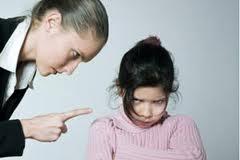Punishing kids for lying just doesn’t work
What the researchers discovered was that:
1.Slightly more than 2/3 of the children peeked at the toy (67.5 % or 251 children out of the 372 who were involved in the experiment). For every 1-month increase in age, children became slightly less likely to peek.
2.When the children were asked whether or not they had peeked, again about 2/3 of them lied (167 children or 66.5%) – and month-by-month as children aged, they both become more likely to tell lies and more adept at maintaining their lies
But what was more interesting to the researchers was that:
1.Children were less likely to tell the truth if they were afraid of being punished than if they were asked to tell the truth either because it would please the adult, or because it was the right thing to do and would make the child feel good.
2.The researchers expected and found that while younger children were more focused on telling the truth to please the adults, the older children had better internalized standards of behaviour which made them tell the truth because it was the right thing to do.
“The bottom line is that punishment does not promote truth-telling,” says Victoria Talwar, the lead researcher on the study. “In fact, the threat of punishment can have the reverse effect by reducing the likelihood that children will tell the truth when encouraged to do so. This is useful information for all parents of young children and for the professionals like teachers who work with them and want to encourage young children to be honest.”
To read the full article in the Journal of Experimental Child Psychology.
Katherine Gombay

